The laboratory has always adhered to the development concept that emphasizes both talent cultivation, scientific research, social services, and cultural inheritance, as well as innovation. It attaches great importance to disseminating scientific knowledge and the spirit of science to the public, especially the laboratory culture of "willing to contribute and daring to lead." Effectively utilizing various channels, it consistently adheres to the principle of both "going out" and "inviting in," achieving significant results in scientific communication.
Research personnel actively volunteer as advocates for disseminating scientific knowledge and the spirit of science
From 2013 to 2017, Professors Zhang Boming, Zhao Zhengming, and Kang Chongqing served as chief scientific communication experts for the China Association for Science and Technology, promoting scientific knowledge to the public. Sun Hongbin, Xiao Xi, Zou Jun, and others have given a total of nine lectures at key high schools in Zhejiang, Sichuan, Hunan, Chongqing, and other provinces and municipalities, presenting the latest advancements in the field of electrical engineering through the "iTsinghua" series of academic lectures. Additionally, graduate students from the laboratory initiated the "Dream Network" project based on their research achievements and advocated for long-term volunteerism. By utilizing their professional knowledge to build new energy microgrids, they addressed the electricity shortage issues in remote areas of western China. This initiative has been featured multiple times on China Central Television.
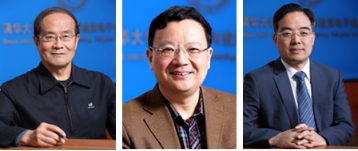
Three professors, Boming Zhao, Zhengming Zhao and Chongqing Kang, served as "Chief Scientific Communication Experts" for the China Association for Science and Technology.
Based on research achievements and utilizing modern methods, provide technical services to society
The laboratory has launched a high-performance Energy Internet Cloud Simulation Platform (www.cloudpss.net), providing high-performance power system simulation services to academia and industry based on cloud platform and parallel computing technologies. The platform has attracted over 1,500 registered users from more than 40 domestic universities (such as Beijing Jiaotong University, North China Electric Power University, etc.), companies (China Electric Power Research Institute, CHINT Electric, etc.), and 6 foreign universities (University of Tennessee, University of British Columbia, etc.).
Quality educational resources are freely disseminated worldwide
Since October 2013, the laboratory has offered China's first online course on "Circuit Principles" MOOC (Massive Open Online Course) on platforms like XuetangX and edX. Up to now, it has attracted over 170,000 students from 158 countries and regions, earning the title of a national-level quality online open course. Additionally, the online course on "Electrical Engineering Technology" MOOC launched in March 2015, has been taken by over 40,000 students. The laboratory has also established a WeChat public account for the Energy Internet research direction, which went online in July 2015. It has garnered over 20,211 followers, with the highest single-article reading reaching 17,271, and a total reading volume of 340,000.
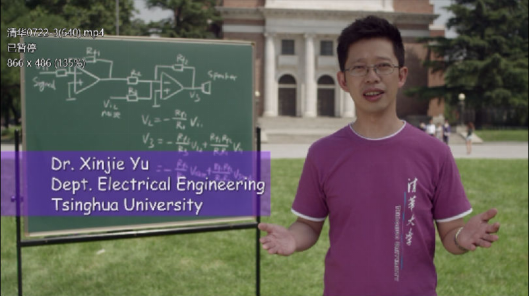
Professor Xinjie Yu delivers lectures on the MOOC "Principles of Circuits
The laboratory is open to the public, particularly students
From 2013 to 2017, the laboratory has received a total of 458 visits from domestic and international universities, research institutions, enterprises, and government agencies (including the National Natural Science Foundation of China, Zhejiang University, Hunan University, Guangxi University, etc.). It has hosted the National Excellent University Students Science and Technology Summer Camp for Electrical Engineering discipline seven times and conducted 24 popular science lectures (including on Central Television and at Tsinghua University's School of Public Management). Additionally, the laboratory has accommodated student internships 113 times, with a total of 3,900 visitors, approximately 55% of whom are primary and secondary school students (from schools such as Tsinghua University Affiliated Primary School, Tsinghua University Affiliated Middle School, Renmin University Affiliated Middle School, Hengshui Middle School, Chengdu No.7 High School, etc.).
Moreover, the laboratory has established an Energy Internet demonstration platform to promote the concept of the Energy Internet to society and experts (including to the Sichuan Provincial Party Committee and Government, the National Development and Reform Commission, the Guangzhou Municipal Committee, etc.). For two consecutive years in 2016 and 2017, it collaborated with the Institution of Engineering and Technology (IET) to hold the National Electrical Engineering Ph.D. Forum, attracting over a hundred students and faculty from domestic universities (such as North China Electric Power University, China Agricultural University, Beijing Jiaotong University, National University of Defense Technology, Hohai University, Shanghai University of Electric Power, etc.) and research institutions (such as the China Electric Power Research Institute).
Additionally, the laboratory's first practical session for undergraduate students in the Electrical Engineering program at Tsinghua University involves a visit to the State Key Laboratory, providing students with a close-up experience of scientific research. During Tsinghua University's anniversary celebrations, the laboratory opens its doors to the public, showcasing technological achievements and explaining popular science knowledge.
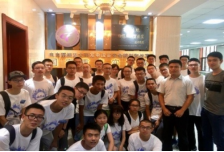
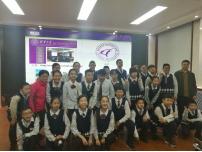
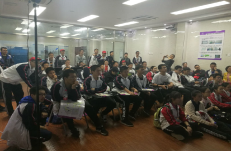
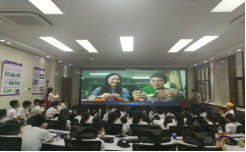
Students visit the laboratory